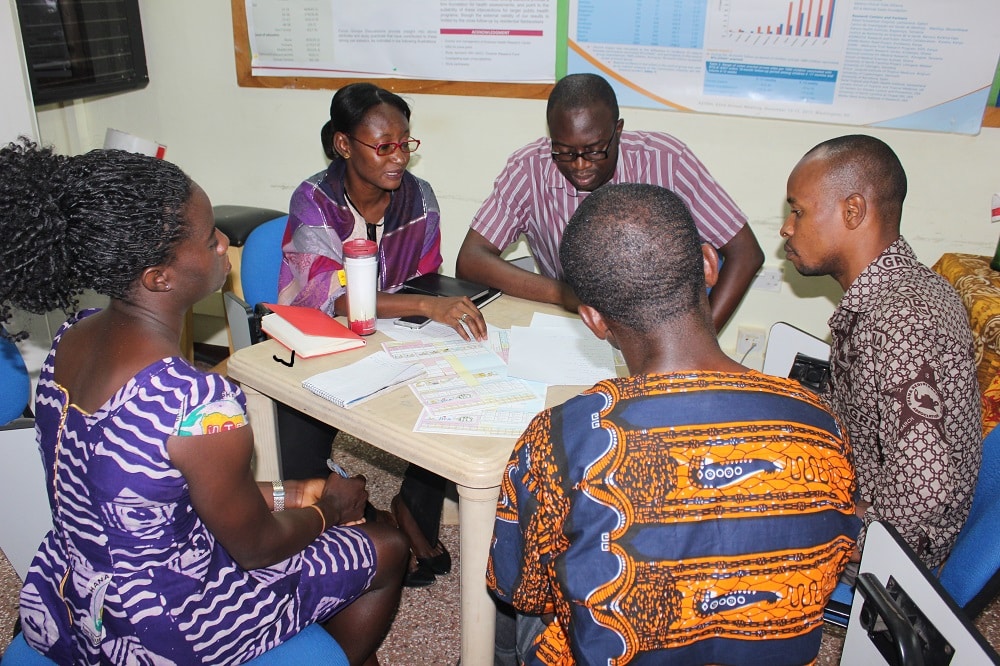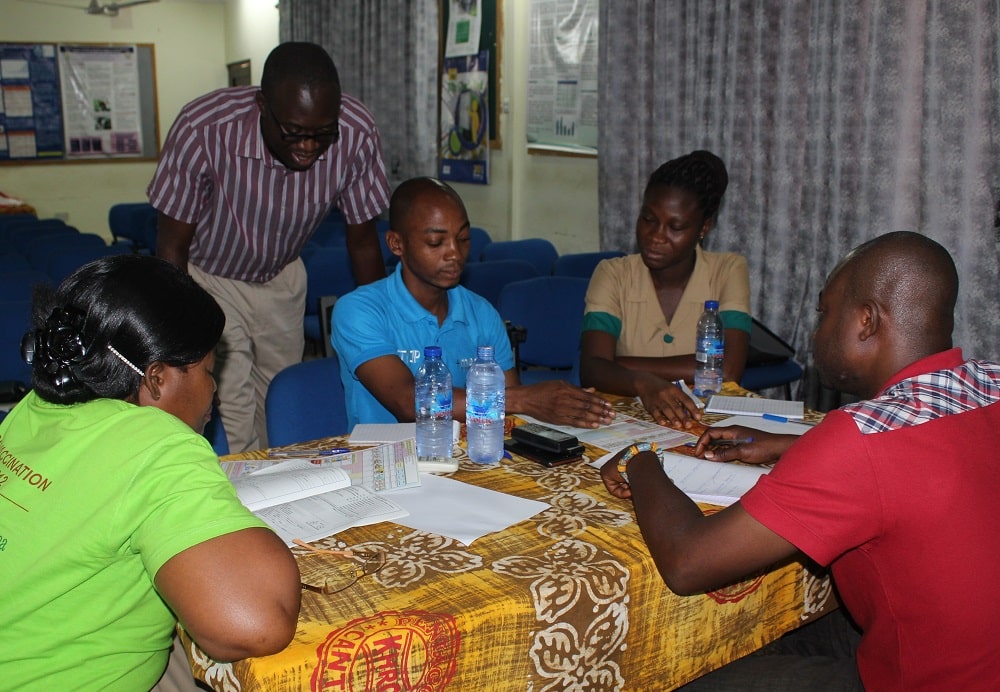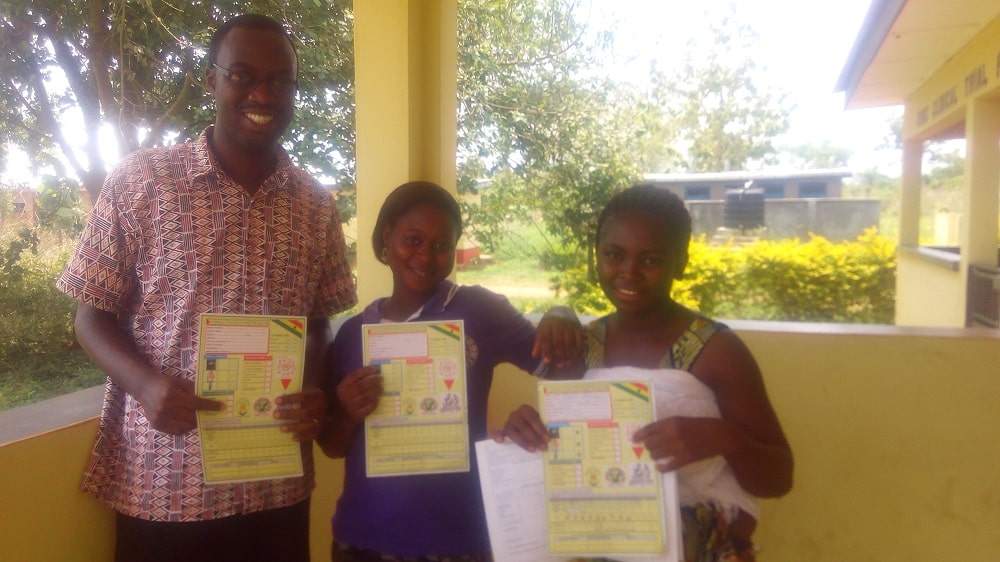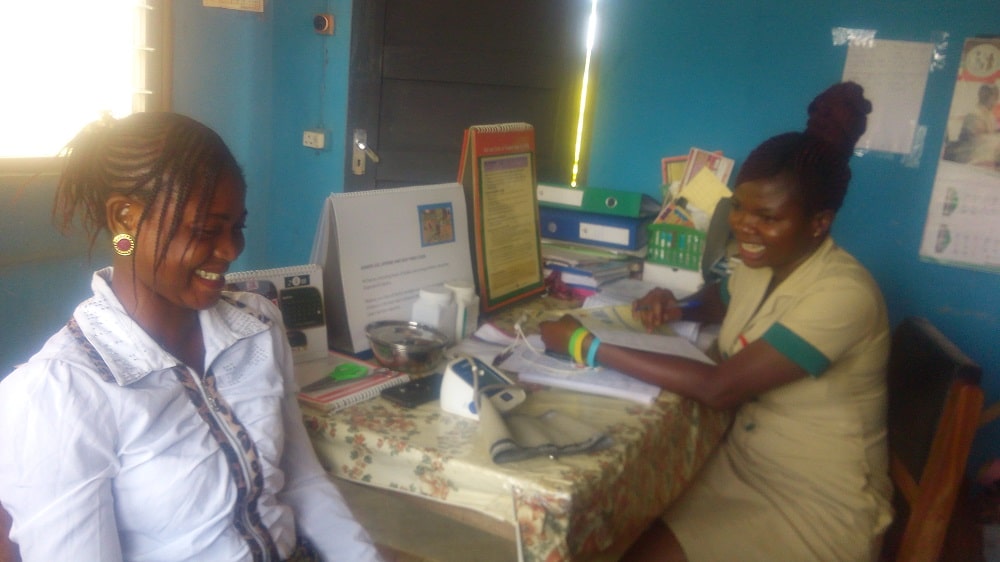
Women of reproductive age to receive family planning services and to improve the quality of service documentation among health workers. Researchers invited health workers, including youth health workers, to inform and refine the design of the Continuum of Card (CoC) card. The card is distributed to women through Family Planning Handbooks available at health facilities and helps track an individual’s use of services and the progress being made in family planning within the community. Health workers use the card to document and monitor the services that each woman receives, such as counseling and contraception uptake. In order to boost card usage, researchers incorporated a lesson learned in a previous study – that Ghanaian women value receiving gold “stars” (stickers) as a reward for accessing family planning services on time.
If you use the COC card, you get an idea of all the things that you need to know about the clients you’re dealing with –you know her weight, other mandatory information, the regularity with which she uses the services. The card helps see if she stops her method [of contraception], what is the reason, or if she changes her method. It highly improves documentation
The Need
Modern contraceptive use amongst Ghanaian women remains low as a result of various factors including gaps in information, monitoring, communications, and education. In addition, the quality of documentation of services at health facilities has not always been consistent. This project, the Continuum of Care Card for Family Planning, aims to address some of these challenges by helping women and health workers better track family planning services and motivating women to be “Gold Star women” who are able to make informed choices.

Key Learnings
A well-designed and simple tool can improve the quality of monitoring health services. Kintampo researchers invited health workers, including young health workers, to help develop and test out the CoC card to identify potential challenges and ensure that the card would be easy to use. By designing a straightforward family planning tracking card informed by health workers, the likelihood of quality documentation was enhanced.
Culturally relevant incentives promote engagement in a new activity. Stars are an important symbol in Ghana, and an earlier study by researchers in Kintampo found that women appreciated being given star stickers as a reward for accessing health services in a timely manner. By using gold stars to reward women’s use of the CoC card, researchers found a meaningful and relatively low-cost way to encourage women to use family planning methods while simultaneously improving the quality of documentation among health workers.
Including young people in the development of family planning tools makes them better sexual and reproductive health (SRH) champions. Kintampo researchers involved young health workers in the design and implementation of the CoC card and found that subsequently, these young people were more interested in seeing the project progress and more motivated for the tool to reach other youth.
We used youth in the development of the card … when they are involved, they will really champion it. Once [young community health officers who are in the health facilities] are involved in the design, they are interested in helping reach other youth.

Implementing Partners
Kintampo Health Research Centre
Location
Ghana
Categories
Family Planning/Contraception
Year Awarded
2016
